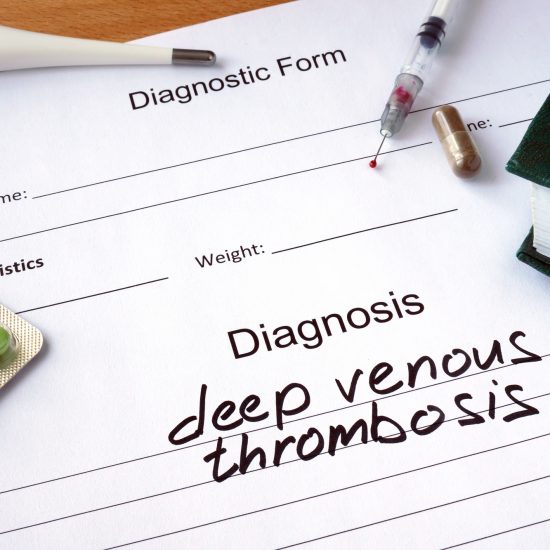
7 Strategies for Depression Treatment
If you’ve ever experienced depression, it’s common to have fears of your depression being a lifelong struggle. With the right professional and self-help strategies for depression, you can help put yourself on the road to recovery and ensure your depression doesn’t take over your life. There are small steps you can take to improve your overall sense of well-being and help you feel more in control. Keep reading to learn how to incorporate these strategies into your depression treatment in a way that makes sense for you.
1. Reach Out and Stay Connected
Support from loved ones during depression treatment plays a vital role in overcoming depression. It can be tricky to maintain a healthy perspective and keep up with the effort required to overcome depression, especially if you’re doing it on your own.
Difficulty reaching out for help from others is common in those experiencing depression. When someone is experiencing depression, they may isolate and withdraw from others.
You may feel ashamed about your situation, exhausted to talk, guilty for neglecting certain relationships, or feel like people just don’t care. But it is essential to remind yourself that this is just depression talking.
Taking part in social activities and staying connected to other people will make a world of difference in your outlook and overall mood. Remember that your loved ones want to help and care about you.
If you feel that you don’t have anyone to turn to, you can always build new friendships and find a support network.
2. Pay Attention to Warning Signs
Work with your therapist or doctor and figure out what might trigger your depression symptoms. Come up with a plan so that you know what to do in case your symptoms get worse, and you start to feel a depressive episode coming on.
Contact your therapist or doctor if you notice any changes in how you feel, symptoms, or triggers. Ask friends or relatives to help watch for warning signs.
3. Do Things That Make You Feel Good
As part of your depression treatment, try to do things that you find relaxing or energizing. Pick up an old hobby or activity you used to enjoy. You can also learn how to express yourself creatively through art, writing, or music.
Hang out with your friends, take a day trip to the beach, a museum, or maybe even an amusement park.
Of course, you can’t force yourself to have fun, but you might surprise yourself when you notice how much better you feel once you’re out in the world. All it takes is pushing yourself to do things, even when you don’t feel like it.
4. Get Moving
Even the idea of getting out of bed can seem like a daunting task when depressed, let alone working out! It is important to note that exercise is powerful when it comes to depression treatment.
Studies have shown that regular exercise can be as effective as taking medicine for relieving major depressive disorder symptoms. Exercise is also great for preventing relapse.
It’s perfectly fine to start small, a 10-minute walk around your neighborhood can improve your mood for two hours.
Exercise will help you to feel more energized, healthy, and less tired, not more.
5. Eat a Depression-fighting Diet
What we eat has a direct impact on the way we feel. Cut down on your intake of foods that can affect your mood and brain. Some of these foods include caffeine, trans fats, alcohol, and foods full of chemical preservatives or sugar.
During major depressive disorder treatments, it is essential you don’t skip meals. When you go too long between meals, you become more tired and irritable. Try to eat something (healthy!) at least every three to four hours.
6. Get Your Daily Dose of Sunlight
Did you know that exposure to sunlight can improve our movement and help boost serotonin levels? Whenever possible, get your daily dose of vitamin D and get yourself some sunlight exposure for at least 15 minutes a day.
You can do this by taking a walk during your lunch break, having your coffee outside, spending time gardening, or enjoying a meal outside. You can also increase your home’s natural light and workplace by choosing lighter-colored curtains, opening blinds and drapes, and choosing to sit near windows.
7. Challenge Negative Thinking
Depression tends to put a negative spin on just about everything. This includes the way we see ourselves and our expectations for the future.
Do you ever feel like you’re weak or powerless? That life is out of your control, and bad things are always happening to you? Do you feel hopeless?
When you feel overwhelmed with negative thoughts like these, it’s important to remember that these thoughts are a symptom of your depression. These irrational, pessimistic, and negative attitudes are known as cognitive distortions, and they aren’t realistic.
Breaking out of this negative mindset isn’t as easy as telling yourself to “just think positive.” A negative mindset is often the result of a lifelong pattern of thought that’s become so automatic to you that you may not even be aware of it.
Identify the type of negative thoughts that contribute to and fuel your depression. Once you identify the destructive and harmful thought patterns, the first step to improving/changing these intrusive thoughts is being able to catch or realize that you are making them.
Challenge these intrusive thoughts with questions such as:
- “If a friend had this very same thought, what would I say to them?”
- “What’s the proof that this thought is true?”
- “If I didn’t have depression, how might I look at this situation?”
- “What are the other alternate explanation or ways of looking at the situation?”
- “Will this matter one year from now?”
Cross-examining your negative thoughts will surprise you once you see how quickly they dissipate.
Depression Treatment: 7 Strategies
From reaching out and staying connected to people that make you feel good about yourself, to challenge negative thinking, we hope you found these 7 strategies helpful and consider incorporating them into your depression treatment in a way that makes sense for you.
For those suffering from depression, you are not alone in this struggle. With the right professional and self-help strategies for depression, you can help put yourself on the road to recovery and ensure your depression doesn’t take over your life.
If you found this post helpful, check out our blog for more posts like this one.
Also Read
Understanding Mood Disorders: Acceptance and Treatment




